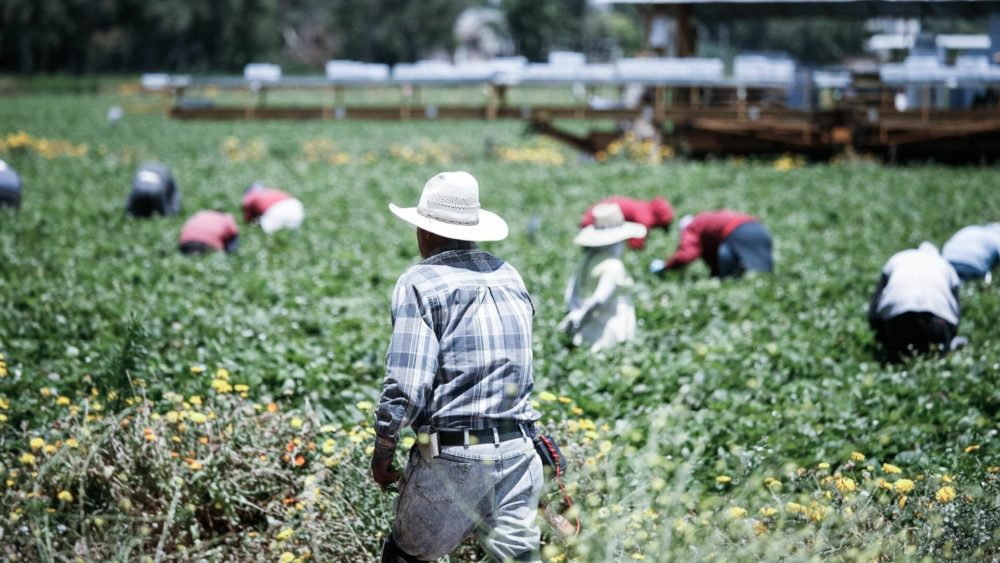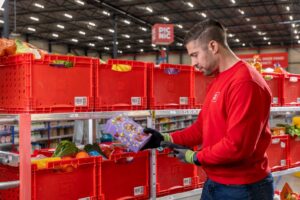Workers across numerous industries are suffering sweeping layoffs, reduced pay, and other pressures as the coronavirus sweeps the globe. Restaurant owners and workers in particular are taking a serious blow from the growing rash of state orders mandating the closure of on-premise dining. At least 40 states have passed laws restricting restaurant sales to takeaway and ‘drive-thru’ service to quell the coronavirus.
But amid cloudy unemployment skies, there are a few bright spots. For recently laid-off workers, the best places to look for new opportunities may be in other parts of the food service industry – or further up the supply chain, with farms.
Countless quick-service restaurants are leveraging existing takeaway capacities to keep consumers in quarantine fed. As many brands face layoffs, delivery-dependent pizza purveyors are actually on the hunt for thousands of new employees. Papa John’s plans to bring on 20,000 new delivery drivers while Pizza Hut is looking for 30,000 recruits for its new onboarding program that trains drivers in five hours.
Grocery retailers are following suit. Sprouts Farmers Market, a natural foods grocery chain, is looking to hire 420 grocery store workers in LA to keep up with demand. Walmart hopes to hire 150,000 more employees, while Kroger needs 10,000 new staff to man cash registers and stock shelves.
Farm vacancies
It appears that some farmers are also looking for labor, which will provide out-of-work people with some financial reprieve. Angus Growers in Scotland is hiring 3,000 new workers to pick fresh berries to offset the financial impact of losing their jobs. Representing 19 Scottish farms, the group produces over 12,400 tonnes of fresh berries for consumers throughout the UK.
“I know that many people are facing redundancy across the travel and hospitality industries, and I would encourage anyone who is looking for work to visit our new dedicated recruitment site and apply,” James Porter, soft fruit grower for Angus Growers, said in a statement.
Angus Growers provided reassurance that its growers pay in accordance with the national living wage and would also provide housing for any workers who don’t live in close proximity to its farms.
More urgently, the organization is reassuring the public that the risk of coronavirus spread among farmworkers is low, due to the open-air nature of harvesting compared to offices and other confined spaces. The business has also developed a protocol for identifying and isolating any workers who show signs of illness.
There are advantages to farm and food-related work, besides immediate income: In the UK, children of farm workers, as well as of other food production, processing, distribution, sale and delivery workers, get priority from education providers amid the coronavirus epidemic, as they are considered critical workers.
“There is an opportunity here for us all to work together to feed our nation,” James added. “We desperately need workers to help us harvest our berries and ensure the UK public can enjoy healthy, nutritious food during this period of uncertainty.”
Hope and worry
That mixed sentiment of opportunity and desperation is intensifying in the growing community. Some farmers are fearing labor shortages as more people become ill, while others are enjoying a boon.
It’s not just fresh berries. Virginia Farm Produce, which grows and packs potatoes and onions near Adelaide, Australia, is hiring 40 new workers to meet increased demand at a time when seasonal labor is not on hand. It has received over 2,000 applications—many submitted by over-qualified workers, including chefs.
The hiring expansion may help some farms stave off an immediate and critical challenge: the devastating impact of coronavirus on the migrant labor force. Virginia Farm Produce typically relies on non-resident seasonal workers, but fears that the pandemic will discourage or bar them from traveling to the farm.
In the US, the pandemic’s impact on agricultural workers could be far more pronounced: the US Embassy in Mexico recently announced that it would suspend visas for border crossings; non-immigrant agricultural work H-2A visas will be good for up to 10 months.




